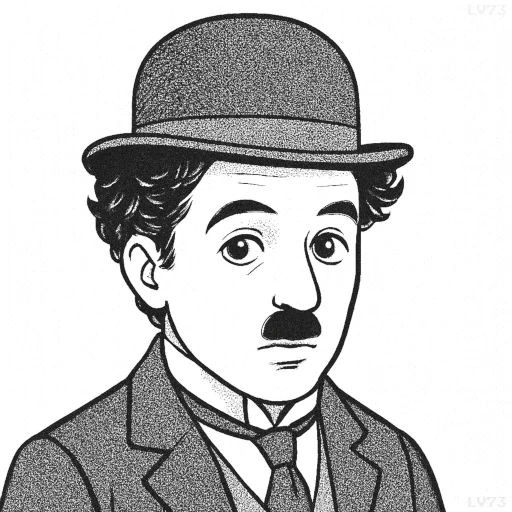“I am for people. I can’t help it.”

- April 16, 1889 – December 25, 1977
- British
- Comedian, film actor, director, screenwriter, composer
table of contents
Quote
“I am for people. I can’t help it.”
Explanation
In this simple but profound statement, Charlie Chaplin expresses his deep and unwavering sympathy for humanity. The phrase “I can’t help it” suggests that his support for people is not a calculated decision but rather an inherent part of his character and nature. Chaplin’s career was marked by a consistent focus on the plight of the poor, the disenfranchised, and the vulnerable. Whether in his portrayal of The Tramp, a character who embodies the struggles of the working class, or in films like Modern Times (1936), where he critiques the dehumanizing effects of industrialization, Chaplin consistently aligned himself with the everyday person. His empathy for ordinary people was central to his work, and this quote encapsulates his belief that his care for others wasn’t something he could simply turn off—it was an integral part of who he was.
Chaplin’s statement also reflects his humanitarian values and his critique of social systems that place power in the hands of a few, while ignoring the needs of the many. As a filmmaker, Chaplin often depicted the resilience and dignity of the common person, even in the face of immense hardship. His belief in people wasn’t naïve—he understood the complexities and flaws of human nature—but his work suggests that, despite these flaws, people were still deserving of compassion, dignity, and hope. Chaplin, who personally faced significant adversity, including being blacklisted during the McCarthy era and living through financial difficulties, never wavered in his belief in the potential for goodness in people, especially when they band together to confront injustice.
In the modern world, Chaplin’s words resonate with ongoing discussions about social justice, equality, and the human condition. Whether in the context of political activism, social movements, or community solidarity, many people today continue to advocate for the common good, often in the face of systems that prioritize power and wealth over people. Chaplin’s message serves as a reminder that no matter how challenging the world may become, the human spirit remains the most powerful force, and we should never lose sight of the importance of compassion and solidarity with others. His commitment to people—in both his art and life—continues to inspire those who seek to make the world a more just, equitable, and empathetic place.
Would you like to share your impressions or related stories about this quote in the comments section?
